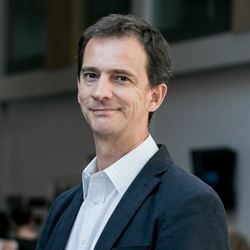
by Richard Bolden
- 13 September 2022
Share:
Bristol Golden Key
For the past eight years I led the independent evaluation of a collaborative partnership project designed to transform the design and provision of services for people with Severe and multiple disadvantage (SMD — also described as “multiple complex needs”) in the city of Bristol in the UK. Golden Key is one of 12 initiatives across England that received money from the National Lottery Community Fund under the Fulfilling Lives program to mobilize beneficial systems change to improve experiences and outcomes for people with a combination of complex needs (see video below for more about the challenges of complex needs and the approach taken by Golden Key).
The research was informed by “realist evaluation” principles, whereby we sought to understand the mechanisms through which interventions produce outcomes within particular contexts (Pawson & Tilley, 1997). As appropriate for evaluating complex interventions (Skivington et al., 2021), we captured multiple perspectives, experiences, and outcomes over time through a combination of methodologies underpinned by a theory of change. Whilst a diverse range of findings, recommendations, and conclusions have been reported, in this article I focus on how seven key aspects of the program helped to facilitate systems change.
Severe and Multiple Disadvantage
Severe and multiple disadvantage (SMD) refers to people who experience combined problems of homelessness, substance misuse, and criminal offending, often alongside mental health issues. In England, an estimated 58,000 people per year face all three of these, with a further 164,000 experiencing two, and 364,000 one, bringing the total to over half a million (Bramley et al., 2015). Such individuals are amongst the most vulnerable and isolated in our communities — susceptible to increased risks of morbidity and mortality (Aldridge et al., 2018; Waugh et al., 2018), poverty, discrimination, and social and economic exclusion (Bramley et al., 2019).
Funding and provision of services and support are typically framed around key institutions and sectors — such as health, social services, housing, police, probation, and drug and alcohol services — yet the complexity of the lives of people experiencing SMD means that they often end up falling through the gaps between services or getting caught in the “revolving door” of crisis and crime.
To better respond to the needs of such individuals, whilst also addressing the root causes of SMD — often linked to a history of adverse childhood trauma and earlier failures of the education, criminal justice, and/or health and social care to provide timely and appropriate support — requires an approach informed by complexity theory that recentres the design, delivery, and funding of services around the unique needs of individuals rather than the convenience of organizations, policy makers, and commissioners. As Fisher (2015) argues:
“The tragic paradox of severe and multiple disadvantage is […] a classic example of the ‘inverse care law,’ which states that the greater a person’s needs, the less likely they will be to receive support […] this problem exists because the support system is wholly unsuited to people facing severe and multiple disadvantage” (p. 4).
Seven Enablers of System Change
System change refers to “an intentional process designed to alter the status quo by shifting the function or structure of an identified system with purposeful interventions” (Abercrombie et al., 2015). It involves deliberately trialing new ways of working in order to activate patterns of beneficial change within complex systems (Fouracre et al., 2022).
A review of evaluation insights, alongside learning from the team leading the initiative, revealed seven key enablers of systems change within Golden Key that might be used by people developing or running systems change activities for SMD and other complex social issues, as illustrated in Table 1.
Enabler
Example
1. Person centred services and support
A pilot of the Housing First approach prioritized the allocation of safe and stable accommodation before attempting to address other client needs.
The appointment of an independent chair to facilitate quarterly Partnership Board meetings ensured equitable engagement of partners and resolution of any conflicts that emerged.
The Independent Futures group, comprising members with lived experience of SMD, ensured representation of client voice in key decision-making forums.
The Service Coordinator role enabled the development of long-term, trusting relationships between clients and service providers.
The Creative Solutions Board drew together professionals from across services to review and take action on cases that had become “stuck.”
The Action Experiment approach encouraged frontline staff to innovate and experiment with novel approaches/interventions.
7. Learning and reflection
Reflective Practice was built into work schedules to ensure that staff had time for structured learning and support.
At the heart of this approach is (re)designing services around the needs of service users. This is facilitated by collaboration and partnership working, embracing a diversity of perspectives and experience (including the voice of lived experience), investing in relationship building, taking a whole system approach, supporting and empowering frontline staff, and developing a culture of learning and reflection.
This work shows the importance of compassionate and collective “systems leadership” (Ghate et al., 2013), where individuals and groups at all levels are inspired, empowered, and enabled to innovate and adapt in order to address complex, “wicked” problems (Head, 2022). The resources outlined below show practical examples of where and how concepts of systems change can help mobilize grassroots leadership to address major social issues. A special issue of the journal Housing, Care and Support will be published later this year, which will include further insights from Golden Key and the Fulfilling Lives project.
We’d love to hear your experiences of doing similar work in other contexts! Visit my profile page to get in touch.
Resources
- Golden Key Local Evaluation reports: https://www.goldenkeybristol.org.uk/impact-evaluation-reports
- Additional learning and insights from the Golden Key project: https://www.goldenkeybristol.org.uk/what-are-we-learning
- Evaluation reports from the wider Fulfilling Lives programme: https://www.fulfillinglivesevaluation.org
References
Abercrombie, R., Harries, E. and Wharton, R. (2015). Systems Change: A Guide to What It Is and How to Do It. Lankelly Chase Foundation. https://lankellychase.org.uk/publication/systems-change-a-guide-to-what-it-is-and-how-to-do-it/
Aldridge, R., Story, A., Hwang, S., Nordentoft, M., Luchenski, S., Hartwell, E., Tweed, E.J, Lewer, D., Ktikireddi, S.V. and Hayward, A. (2018). Morbidity and Mortality in Homeless Individuals, Prisoners, Sex Workers and Individuals With Substance Use Disorders in High Income Countries: A Systematic Review and Meta-Analysis, The Lancet, 391, 241-50. https://www.thelancet.com/journals/lancet/article/PIIS0140-6736(17)31869-X/fulltext
Bolden, R., Isaac, B., Pawson, C. and Gasper, R. (2022). Systems Change for Multiple Complex Needs: A Practical Tool. UWE, Bristol on behalf of Golden Key Bristol. https://www.goldenkeybristol.org.uk/s/GK-Systems-Change-practical-tool-FINAL.pdf
Bramley, G., Fitzpatrick, S., Edwards, J., Ford, D., Johnsen, S., Sosenko, F. & Watkins, D. (2015). Hard Edges: Mapping Severe and Multiple Disadvantage in England. Lankelly Chase Foundation. https://lankellychase.org.uk/publication/hard-edges/
Bramley, G., Fitzpatrick, S., Wood, J., Sosenko, F., Blenkinsopp, J., Littlewood, M., Frew, C., Bashar, T., McIntyre, J. and Johnsen, S. (2019). Hard Edges Scotland. Lankelly Chase Foundation. https://lankellychase.org.uk/publication/hard-edges-scotland/
Fisher, G. (2015). The Complexity of Severe and Multiple Disadvantage. Lankelly Chase Foundation. https://lankellychase.org.uk/news/the-complexity-of-severe-and-multiple-disadvantage/
Fouracre, B., Fisher, J., Bolden, R., Coombs, B., Isaac, B. and Pawson, C. (2022). An Emergent Process for Activating System Change: Insights From Golden Key Bristol, Housing, Care and Support, forthcoming.
Ghate D., Lewis J., & Welbourn D. (2013). Systems Leadership: Exceptional Leadership for Exceptional Times – A Synthesis Report. Virtual Staff College. https://www.leadershipcentre.org.uk/systemsleadership/wp-content/uploads/2017/01/VSC_Synthesis_exec_complete.pdf
Head, B. W. (2022). Wicked Problems in Public Policy: Understanding and Responding to Complex Challenges. Palgrave Macmillan.
Ospina, S.M., Foldy, E.G., Fairhurst, G.T., & Jackson, B. (2020). Collective Dimensions of Leadership: Connecting Theory and Method, Human Relations, 73(4): 441-463. https://doi.org/10.1177/0018726719899714
Pawson, R. & Tilley, N. (1997). Realistic Evaluation. Sage.
Skivington, K. et al., (2021). A New Framework for Developing and Evaluating Complex Interventions: Update of Medical Research Council Guidance, BMJ, 374(4), n2061. https://www.bmj.com/content/374/bmj.n2061
Waugh, A., Clarke, A., Knowles, J., & Rowley, D. (2018). Health and Homelessness in Scotland. The Scottish Government. https://www.gov.scot/publications/health-homelessness-scotland/
West, M. (2021). Compassionate Leadership: Sustaining Wisdom, Humanity and Presence in Health and Social Care. Swirling Leaf Press.

Dr. Richard Bolden has been Professor of Leadership and Management and Director of Bristol Leadership and Change Centre at Bristol Business School, University of the West of England (UWE) since 2013. Prior to this he worked at the Centre for Leadership Studies at the University of Exeter Business School for over a decade and has also worked as an independent consultant, research psychologist and in software development in the UK and overseas.
His research explores the interface between individual and collective approaches to leadership and leadership development in a range of sectors, including higher education, healthcare and public services. He has published widely on topics including distributed, shared and systems leadership; leadership paradoxes and complexity; cross-cultural leadership; and leadership and change. He is Associate Editor of the journal Leadership.
Richard has secured funded research and evaluation projects for organisations including the NHS Leadership Academy, Public Health England, Leadership Foundation for Higher Education, Singapore Civil Service College and Bristol Golden Key and regularly engages with external organisations.

